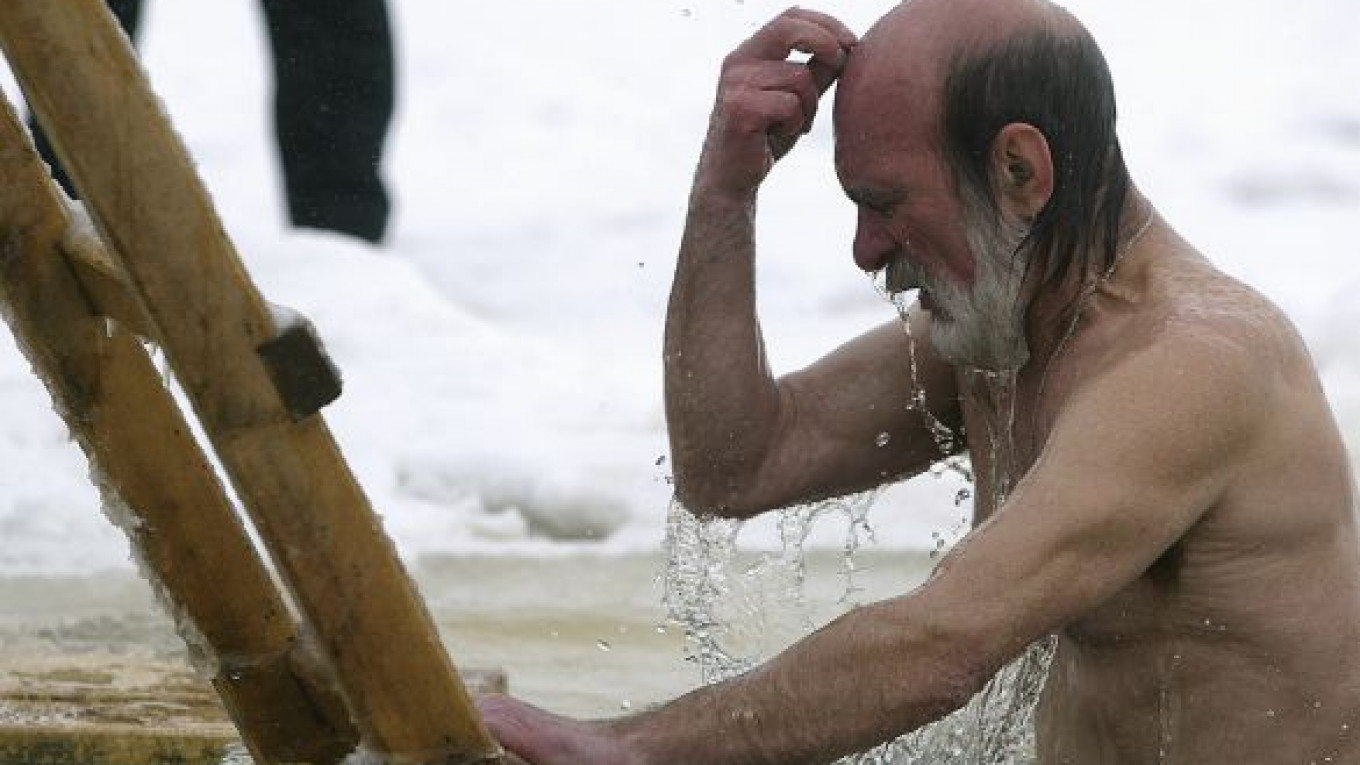Originally from Tasmania, Australia, Jessie Cumming moved to Moscow to work as a teacher in 2009. Knowing no Russian, she looked to expat groups to get involved with the local community. She joined Auski, a group for Australian and New Zealand expats, and has seen it grow from a small group to about 150 members.
Cumming, 31, took over as coordinator in 2010 and is currently planning two Auski charity events. The Cold Plunge on Jan. 28 will see expats and Russians jumping into an icy lake at Serebryany Bor to raise money for Moscow's homeless. Each participant must raise at least 2,000 rubles to take part in the event.
The Down Under Ball on March 3 will raise funds for Big Brothers Big Sisters, a child-mentoring charity.
Q: When did you first become involved in raising money for charity?
A: My parents always helped others, so it was a natural progression for me to do the same.
The first charity fundraiser that I organized was in Yogyakarta, Indonesia. It was a memorable day involving Australian students pedaling local Indonesians around on becaks, a three-wheel bicycle, to raise money for children's charities.
Q: Which charity or cause is particularly close to you?
A: As a teacher, most children's charities are close to my heart! I have my own charity, the Australian Vanuatu Education Project, which focuses on assisting children (and more recently women) on the Pacific island of Vanuatu. I also feel a strong desire to help the homeless. I volunteered to help homeless people in both Australia and the United States and heard heartbreaking stories of men and women who, after a terrible event in their lives, had lost extremely successful careers and ended up on the street.
Q: How does your group Auski decide which charities to support?
A: It's particularly important for us to be able to see financial records, make sure the charity is legitimate and that all funds we raise will only be used for their intended purpose.
That's why for the Cold Plunge event, the International Women's Club of Moscow will allocate the funds, as their distribution system is great.
Q: Does charity in Russia differ from other places where you have worked?
A: I think the main difference is that Russians can be more skeptical about donating money to charities. They don't always believe that the money will get to those who need it. Perhaps they aren't as community-orientated too. Russians tend to concentrate on helping their own family first – which is definitely not a bad thing.
Q: Do you give money to panhandlers you see on the street?
A: Yes, sometimes. I know it's said that many beggars are from organized crime gangs, but often I'm willing to take that risk. If there is a chance the beggar can use that money to buy food, or other necessities, then I'm okay with that. I have more than enough.
Q: What would you say to those who aren't already involved in charity work?
A: People don't know how rewarding it is and how much of a difference one person can make. Money is one thing, but giving your time is so rewarding — I wish more people would do it.
The Cold Plunge takes place Jan. 28. 12.30-1.30 p.m. The Polar Bear Club, Tamanskaya Street 9, Shore of Maloye, Bezdonnoye Lake, Serebryany bor. An after party will be held after the event at Strelka from 3 p.m. For more information about the Cold Plunge and The Down Under Ball visit
A Message from The Moscow Times:
Dear readers,
We are facing unprecedented challenges. Russia's Prosecutor General's Office has designated The Moscow Times as an "undesirable" organization, criminalizing our work and putting our staff at risk of prosecution. This follows our earlier unjust labeling as a "foreign agent."
These actions are direct attempts to silence independent journalism in Russia. The authorities claim our work "discredits the decisions of the Russian leadership." We see things differently: we strive to provide accurate, unbiased reporting on Russia.
We, the journalists of The Moscow Times, refuse to be silenced. But to continue our work, we need your help.
Your support, no matter how small, makes a world of difference. If you can, please support us monthly starting from just $2. It's quick to set up, and every contribution makes a significant impact.
By supporting The Moscow Times, you're defending open, independent journalism in the face of repression. Thank you for standing with us.
Remind me later.


